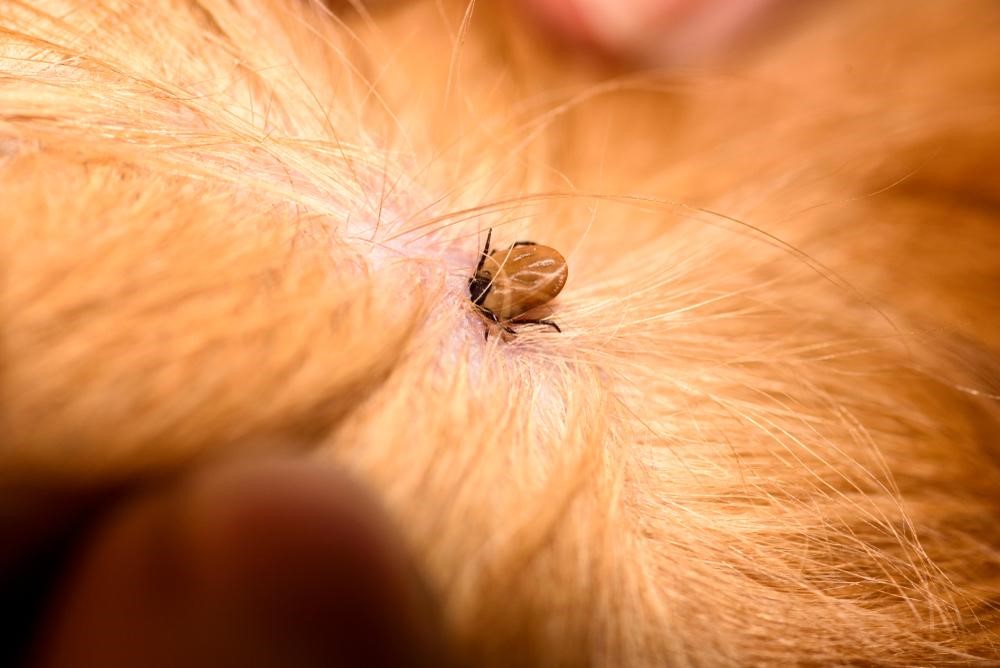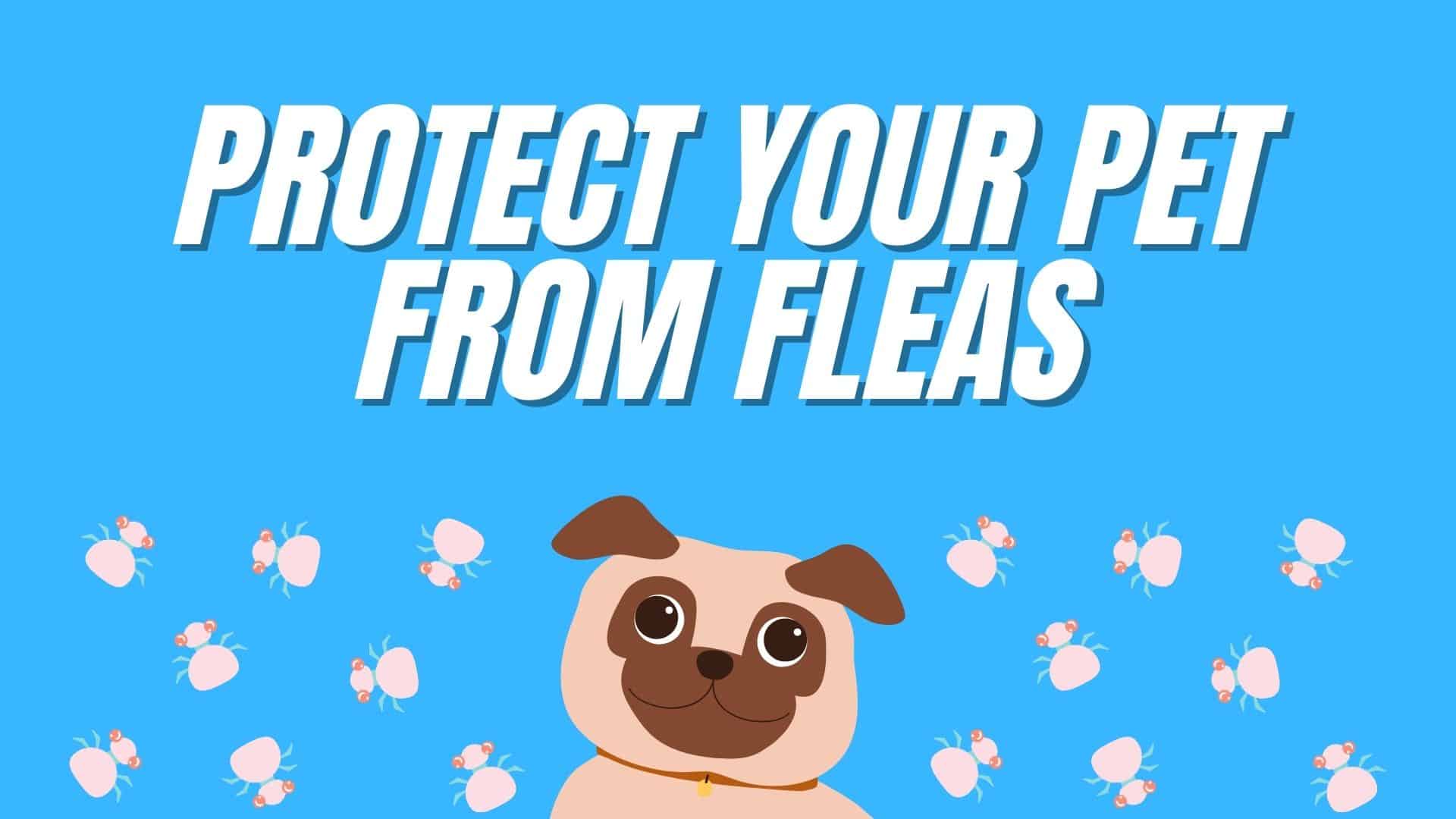Is it Flea & Tick season? Are your loving companions showing signs of flea bites, looking uncomfortable or perhaps itching excessively?
Then it’s time for you to protect your pet!
Don’t let fleas and ticks harm your pet, instead gear up and follow the advice below to keep fleas & ticks away and ensure your pets stay happy and healthy.

Here are 7 ways to protect your pets from fleas and ticks:
1. Practice Prevention
Why wait for the fleas? The best thing you could possibly do is take preventative measures even before the nasty critters get involved in your pets life. Take preventative method not only for your pets but also all around the house and yard.
Even though summer and spring are known as the fleas and ticks season, you should take year-round preventive actions. Don’t be ignorant towards pests even if they still have not taken over your pet’s body.
2. Inspect Your Pet Regularly
It doesn’t matter if your pet is itchy or not, you should always inspect your pets for pests on a regular basis! That way even if a flea or tick get its hooks on your pet, it will get caught soon enough.
Pets don’t have an immediate reaction when fleas attack them. But what happens when they start laying eggs? After a blood meal, a female flea can lay 20-30 eggs a day! So just imagine how fast they can spread!
If your pet is furry, then go through its hairs and folds of its body because that’s where pests love to take place. If that’s a bird, check underneath its feathers.
Comb with a sheet placed under your pet and check if anything falls. Also if you see your pet is getting sick or has any flea bite marks. If you find some, take preventative measures immediately.
3. Brushing & Grooming
Buy a flea comb and brush your pet regularly. For best results get a comb with more dense teeth as they are more through.
Also bathe your pet regularly. Shampooing with pest removal elements helps with flea removal and protection as well.
Fleas and ticks removal dips aren’t anything new. This helps a lot to kill flea eggs and ticks from your pet. You can either make a dip by your own or buy products to make it. But take a note on the chemicals used as the wrong one can damage the fur, skin and cause allergies.
4. Protect Your Pet
Don’t lock-up your pets at home in the fear of these creepy insects. It’s not only counterproductive but illogical too! Rather protect your pet to fight with these fleas and ticks.
Before going to areas which could have fleas possibly, you can take these steps to protect your pet:
Flea Collars:
Invest in a good flea collar for your pet. They are cheap, long-lasting and some of them uses natural elements to protect your pet. Fleas and ticks won’t be able to come near to your pets then.
Citrus Juice:
It’s another option to keep fleas and ticks away. Remember freshly squeezed citrus juice is the way to go. Don’t confuse it with citrus oil as your pet could have side effects from that. Citrus is a natural flea deterrent and also heals pest bites.
Dust With Herbal Repellent:
You can sprinkle herbal dust on your pet before going outside. Powdered rosemary or rue could help. You can mix equal amounts of 2-3 types as well.
Remember your pets are most likely to catch fleas while they’re outside. So make sure to take precaution procedures to protect them from fleas.
If your dog is allergic, then it’s highly recommended that you consult a vet before doing anything.
5. Differentiate Products for Different Pets
Dogs and cats undoubtedly don’t have the same skin and fur types. Let alone dogs to cats, even dogs to dogs skin and nature varies a lot. And if you have any other pets, same goes for them as well.
So buying fleas and ticks removing products in general and applying it to all your pets isn’t wise. This is one grave mistake that many pet owners do.
Always do your homework on your pets and the products you will be applying on them. Cats have more delicate skin than dogs. It is inconsistent for all animals. Don’t use the same product for different animals.
6. Using Essential Oils
Essential oils are great when it comes to killing and preventing fleas or ticks. A study shows that it actively works on pests better than all those chemical made formulas.
Lavender, lemongrass, peppermint, cedarwood, citronella, thyme are great examples of essential oils. You could rather spray it on your pet or rub it on their fur. Make sure to avoid sensitive places like the eyes, nose, etc.
Before using it, make your pet smell that oil and check how it reacts upon it. Some may be allergic to a few types.
Caution for Cats:
Cats lack a certain enzyme which doesn’t let them metabolize few elements presented in the oil. Their skin is more intricated than a dog’s skin. So it’s best to consult with your vet first.
7. Pet’s Diet
While you are taking the best measurements to keep your pets safe from outside, why not do something which will naturally give your pet strengths to confront fleas and ticks?
One-half teaspoon of brewer’s yeast gives your pet vitamin B which repels these pesky pests. You can add the nutritional yeast regularly with your pet’s food.
You can add apple cider vinegar and garlic to your pet’s diet as well. Apple cider vinegar is usually mixed with water and then given to your pet. Sometimes your pet could also be allergic to garlic. Beware of that fact.
It would be best if you discuss a proper healthy diet for your pets with your vet to repel fleas and ticks.
Final Thoughts
Fleas are a bit easy to detect but ticks are smaller and stick to your pet’s skin. So make sure to take the best step for your pets and whack down all the fleas and ticks before they can cause harm.





